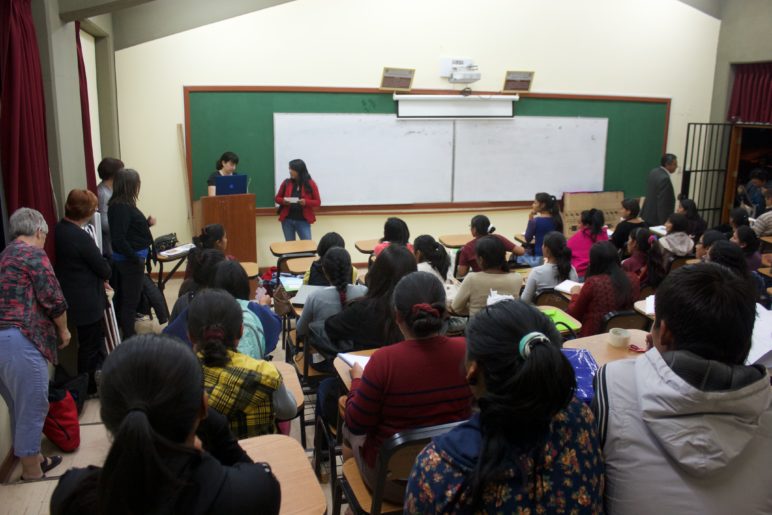| Location: | Ayacucho and Huaraz, Peru |
| Start Date: | 2014 |
| End Date: | 2016 |
| Partners: |
Peru Uro-Gynecology Initiative: Hope & Help for Women with Pelvic Organ Prolapse & Incontinence
Since 2014 in Ayacucho & Huaraz, Peru
Partnerships:
- Uro-gynecolgy Clinic, Lois Hole Hospital
- Andean Alliance
- SOMDES
The Uro-gynecolgy Project is the result of a partnership between Sombrilla and the Uro-gynecolgy Clinic at the Lois Hole Hospital. The clinic provides a holistic approach to treating pelvic organ prolapse and incontinence for women here in Edmonton. They are a multidisciplinary team including physicians, nurses, nurse practitioners, physiotherapists and nutritionists. They have a strong desire to bring help to women in other parts of the world by working with local health professionals and teaching the best practices that they use. They believe that no woman should suffer in silence with a poor quality of life when help is available.
Pelvic organ prolapse is when the pelvic organs (bladder, bowel, and uterus) drop from their normal place and push against the wall of the vagina and incontinence means the involuntary loss of urine and/or stool. This is a global women’s health pandemic since vaginal childbirth and menopause are the two leading causes. Countless women suffer silently with symptoms that they do not understand. In Peru, many health care providers do not know there is treatment that does not require surgery. Most Uro-gynecologists in developed countries use pessaries as the first method to treat prolapse, in addition to pelvic floor physiotherapy. Non-surgical management of prolapse is effective, safe, inexpensive, without major complications.
The goal of the Uro-gynecolgy Project is to improve the quality of life for women living with prolapse and/or incontinence, and to create a self-sustaining project by educating and training local health professionals who care for the women.
In spring of 2016 a team from the clinic travelled with Sombrilla 2 communities in Peru and started working with Peruvian health providers and treating women. The team first went to Ayacucho Peru where they were hosted by our partner organization SOMDES. Then after a few days of meeting with gynecologists in Lima they took the project to Huaraz where they were hosted by Andean Alliance. They worked in two of the local health posts including Marian which provides care to the women of the Yurac Yacu community.
The Uro-gynecolgy team made some very good contacts in Peru and with their Peruvian counterparts they treated close to 100 women. The team will be returning to Peru in September of 2017 to continue with this work

